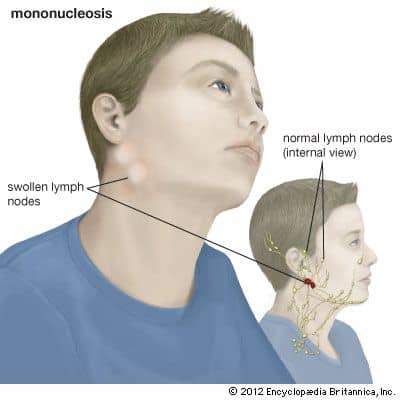What Is Glandular Fever? An Essential Guide for Parents
Hello there, super parents! Are you looking to demystify the term “glandular fever” that you’ve probably heard tossed around at the school gates or during pediatrician visits? Well, you’re in exactly the right place. Glandular fever can sound a bit alarming, but don’t fret – I’m here to guide you through everything you need to know about this common illness in children and teenagers. Let’s dive right in!
What Exactly Is Glandular Fever?
Glandular fever, also known as infectious mononucleosis or simply “mono,” is a viral infection predominantly caused by the Epstein-Barr virus (EBV). This condition is most known for causing feelings of fatigue, fever, a sore throat, and swollen lymph glands. While anyone can contract glandular fever, it’s most prevalent among young people, particularly those between the ages of 10 and 25.
Signs and Symptoms to Watch Out For
As a parent, you know your child better than anyone. Being on the lookout for particular signs and symptoms can help you identify if they might be experiencing glandular fever. The symptoms can vary but typically include:
- High fever: Your child may develop a high temperature that doesn’t seem to diminish with the usual treatments.
- Sore throat: Often severe, the sore throat can be accompanied by tonsillitis or white patches on the tonsils.
- Swollen lymph nodes: Lymph nodes, especially in the neck, become swollen and tender to the touch.
- Fatigue: Extreme tiredness is a hallmark of the illness that may stick around even after other symptoms have faded.
- Swelling: They may experience swelling in the face, or more specifically, the eyelids.
Note: Glandular fever symptoms can mimic those of other illnesses, such as strep throat or influenza, so it’s crucial to consult a healthcare professional for a correct diagnosis.
How Is Glandular Fever Spread?
EBV, the virus responsible for glandular fever, is primarily transmitted through saliva – which is why the disease is sometimes referred to as the “kissing disease.” However, it can also spread through:
- Coughs or sneezes
- Sharing drinks and eating utensils
- Exposure to infected toys
Teaching your kids good hygiene practices, like regular handwashing and not sharing personal items, can help reduce the risk of infection.
The Good News About Glandular Fever
Breathe a sigh of relief, dear parents – most children and teenagers fully recover from glandular fever without any long-term impacts. It typically self-resolves, and while there is no specific treatment for the virus itself, you can certainly support your child’s comfort and recovery. Here’s how:
- Ensure they get plenty of rest, as rest is key to recovery.
- Keep them hydrated with plenty of fluids.
- Provide pain relief with over-the-counter medications like paracetamol or ibuprofen, following the advice of your healthcare provider.
- Maintain a comfortable environment to ease symptoms and promote rest.
Now, while we’ve covered the basics of what glandular fever is and what to look for, there’s plenty more information to help you through this time. In the continuation of our guide, we’ll delve into the recovery process, complications to be aware of, and when you should seek further medical attention.
Remember, while glandular fever may hamper your young one’s spirits for a short while, with your loving care, they’ll be back to their energetic selves in no time! Stay tuned for more empowering insights that’ll prepare you to tackle glandular fever with confidence and care!

5 Things Parents Should Know in Preparing for Glandular Fever
Preparedness is your secret superpower, parents! When it comes to glandular fever, being informed and ready can make a world of difference in how you navigate this illness with your child. Here are five crucial things you should know:
- It’s About Symptom Management: Since glandular fever is caused by a virus, antibiotics aren’t effective. The best approach is managing the symptoms – make sure your child has a cozy spot to rest, plenty of fluids at hand, and access to pain relief if needed. Keep that thermometer and a cold compress ready for fevers.
- Be Patient With Recovery: Glandular fever is notorious for its lingering fatigue. Your child might need several weeks to fully bounce back, even after the initial symptoms are gone. Encourage a gradual return to regular activities and don’t rush the process – their body is doing important healing work!
- Watch for Complications: In a small number of cases, glandular fever can lead to complications like an enlarged spleen. Keep an eye on your child’s symptoms and if they experience severe abdominal pain, it’s time to seek medical attention as this could indicate a spleen issue.
- Prep Siblings and Family Members: Glandular fever is quite contagious. Reinforce hygiene practices at home and minimize the sharing of personal items. It’s not just about protecting siblings, but also making sure you stay healthy to care for your unwell child.
- Mental Health Matters: Remember that being unwell can affect your child’s emotions and mental state. Offer loads of encouragement and keep their spirits up; a little TLC goes a long way. It’s also okay to reach out for additional support if your child is feeling down or anxious about their health.
Further Insights into Glandular Fever Care and Recovery
With these strategies up your sleeve, you’re well on your way to becoming a glandular fever guru. However, learning never stops in the world of parenting – so, in our journey, we’ll explore more comprehensive care tactics, understand the nuances of recovery, and get savvy about spotting when to call the doctor for backup.
Whether it’s connecting with other parents for tips and support, or simply learning to trust your instincts more, knowledge is power when it comes to tackling glandular fever. Your child’s health and happiness are paramount, and this guide aims to arm you with all you need to nurture both.
Through rest, hydration, and pain management, bolstered by your unwavering support and a dash of patience, your child will be on the road to recovery. You’ve got this, amazing parents! Keep an eye out for more in-depth content as we continue to unfold the mysteries of glandular fever together.
See more great Things to Do with Kids in New Zealand here. For more information see here
Disclaimer
The articles available via our website provide general information only and we strongly urge readers to exercise caution and conduct their own thorough research and fact-checking. The information presented should not be taken as absolute truth, and, to the maximum extent permitted by law, we will not be held liable for any inaccuracies or errors in the content. It is essential for individuals to independently verify and validate the information before making any decisions or taking any actions based on the articles.




